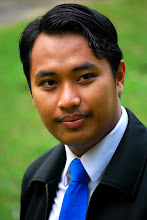With a nuanced understanding of Asian cultures, he is a citizen of the world in a way that none of his predecessors could ever have been
By P.K. Basu
DESPITE the disaster of Iraq and the worst financial crisis in 75 years, the US remains by far the world’s predominant economic, financial and military power – buttressed by cultural “soft power” that no global rival comes close to matching.
Consequently, an American president’s actions have far wider global ramifications than those of any other individual. Yet the rest of the world has no say at all in choosing the individual whose actions over the next four years will have such a transformative impact on people across the globe.
Thus the world was entirely right to heave a collective sigh of relief (and whoop of unalloyed joy) upon the remarkable election of Barack Hussein Obama as the 44th President of the United States.
With a Kenyan father, a half-Indonesian sister with a Sanskrit name (Maya, meaning “illusion”), and a Canadian brother-in-law of Sabahan-Chinese ancestry, President-elect Obama is a citizen of the world in a way that none of his predecessors could ever have been, with a nuanced understanding of Asian cultures that is rare among the world’s leaders.
President-elect Obama demonstrated remarkable prescience on economics, foreign affairs and security issues throughout the campaign – and occasionally from even before starting his campaign. On each major issue, Obama’s visionary stance was initially received with skeptical criticism, eventually accepted as prescient, and then quietly adopted as the official policy.

As a state (rather than national) Senator in 2002, Obama opposed George W. Bush’s decision to go to war in Iraq not just because the factual evidence of WMD (weapons of mass destruction) was too thin, but because Iraq’s three-way ethnic faultline would be impossible to heal, and would unnecessarily divert America’s military from its primary focus on those who had perpetrated the outrage of 9/11/01 (al-Qaeda, and their former Taliban protectors) in Afghanistan. This was an unpopular minority position in the US then; six years later, it is the accepted wisdom on the issue.
For two years – long before the US financial sector entered troubled waters 15 months ago – Obama hammered away on the need to roll back the tide of de-regulation that was exposing the financial system to excessive risks.
With greater clarity than any other candidate for president, Obama’s standard stump speech stressed that greater oversight over investment banks and leveraged institutions was essential to rein in the excesses that were undermining the foundations of capitalism.
This was initially greeted as an esoteric critique – but eventually even the leading cheerleader of de-regulation, former Fed chairman Alan Greenspan, has had to acknowledge the prescience of Obama’s stand.
Similarly, candidate Obama was roundly criticised as naive for advocating that the US should engage with Iran: as he put it, the only way to induce a “change in behaviour” is to engage in direct talks that can help determine whether there are any areas of possible agreement.
After the initial round of near-universal excoriation, it gradually began to be acknowledged that any solution to some of the intractable problems of west Asia (including Iraq itself, as well as Syria/Lebanon) required engaging Iran. And soon enough, a Bush administration representative was found attending confabulations with its Iranian counterparts.
Ultimately, however, his handling of the dire economy will define Obama’s presidency. With his party in control of both the House and Senate, he has an opportunity to take effective and decisive action to address the weaknesses in the financial system – beginning with a massive fiscal stimulus focused on investments in infrastructure, education and renewable energy (the priorities Obama himself emphasised during the campaign).
Aggressive monetary ease by the US Fed is having scant impact on the real economy, as the broken banking system is unable to act as a transmission mechanism for monetary expansion. In this classic “liquidity trap”, a large Keynesian fiscal stimulus is the only medicine that will work – giving Obama an opportunity to remake the economy in the image of Franklin Roosevelt, who ended the Great Depression of the 1930s.
Although his early actions will appear to place him firmly on the left of the ideological spectrum, those are simply pragmatic steps that are absolutely necessary in current circumstances.
Obama’s speeches and autobiography suggest he will be a radical centrist and a uniting figure – and his presidency will demonstrate anew the remarkable US capacity for periodic self-renewal. His experienced team headed by Geithner at Treasury, Summers at the White House National Economic Council, and Volcker and Goolsbee in a new “advisory board” will strive towards creating a more equitable regime of global oversight for financial markets (“Bretton Woods II”).
A more coherent US policy response to the US financial crisis, and greater international cooperation on finance, the environment and the anti-terrorist campaign will mark a refreshing change from the confrontationist rhetoric of the Bush years – allowing the US to return again to its leadership role in building a better world in the uplifting mould of Kennedy, Roosevelt and Lincoln.
The world could not have asked for a better antidote to the despondency of the Bush presidency – although its baleful legacy will still haunt the early months of the Obama presidency.
P.K. Basu is chief economist (Asia ex-Japan) of Daiwa Research Institute in Singapore. Prior to this, he was chief economist of Khazanah Nasional Bhd. His previous other positions include chief economist of Credit Suisse First Boston (South-East Asia and India) and UBS director of Asian macro-economics.




 Malaysian Ringgits per Gram
Malaysian Ringgits per Gram Malaysian Ringgits per Kilo
Malaysian Ringgits per Kilo
0 comments
Post a Comment